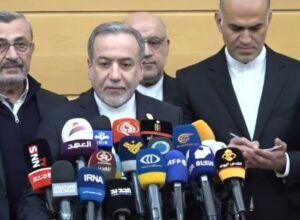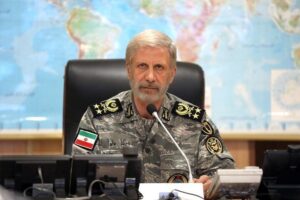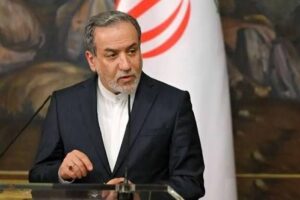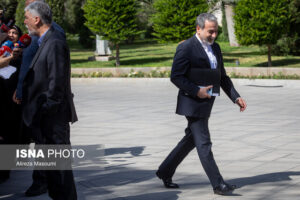Seyed Abbas Araghchi submitted an opinion piece to The Asahi Shimbun and other Japanese media prior to the 80th anniversary of the atomic bombings of Hiroshima and Nagasaki.
“Japan and Iran must lead a global movement for the total abolition of all WMDs: nuclear, chemical and biological,” he wrote.
He pointed out that Iran shared the pain and suffering of WMDs with Japan as it was targeted with chemical weapons in its war against Iraq in the 1980s.
He called the atomic bombings of the Japanese cities on Aug. 6 and Aug. 9, 1945, “a testament to the devastating power of nuclear weapons.”
“Many survivors carry physical and psychological wounds that time has not healed,” Araghchi wrote. “They have lived their lives in the shadow of those nuclear flashes, turning their trauma into tireless advocacy for peace and disarmament.”
In June, during a NATO summit meeting, U.S. President Donald Trump equated the U.S. attack against three nuclear facilities in Iran that month with the atomic bombings of Hiroshima and Nagasaki.
He told reporters, “That hit ended the war. I don’t want to use an example of Hiroshima and Nagasaki. But that was essentially the same thing. That ended that war.“
Araghchi took issue with Trump’s comment, saying: “The remark was more than a historical misstep; it was a deep insult to the memories of the dead and the dignity of those still living with the consequences of those bombings.”
He added that in Iran, “the comparison was received with particular pain and fury.”
In 1987 during the Iran-Iraq war, the city of Sardasht in northwestern Iran came under a mustard gas attack from Iraq that killed about 130 Iranians and left several thousand with permanent disabilities.
Based on that experience, Araghchi wrote that Iran “has suffered from the effects of WMDs in its own modern history.”
He added: “Few nations understand, as deeply as ours, the irreversible impact of WMDs. We must raise our collective voice to say: never again.”
Araghchi did not touch upon Iran’s claim that its uranium enrichment program was for peaceful purposes.
Israel bombed Iranian nuclear facilities and air defense system on grounds it had to remove the threat of Iranian nuclear weapons and ballistic missiles.
Iran retaliated with ballistic missile attacks on Israel. The United States joined its ally Israel and bombed Iranian nuclear facilities.
After 12 days of fighting a cease-fire agreement was reached by Iran and Israel.







